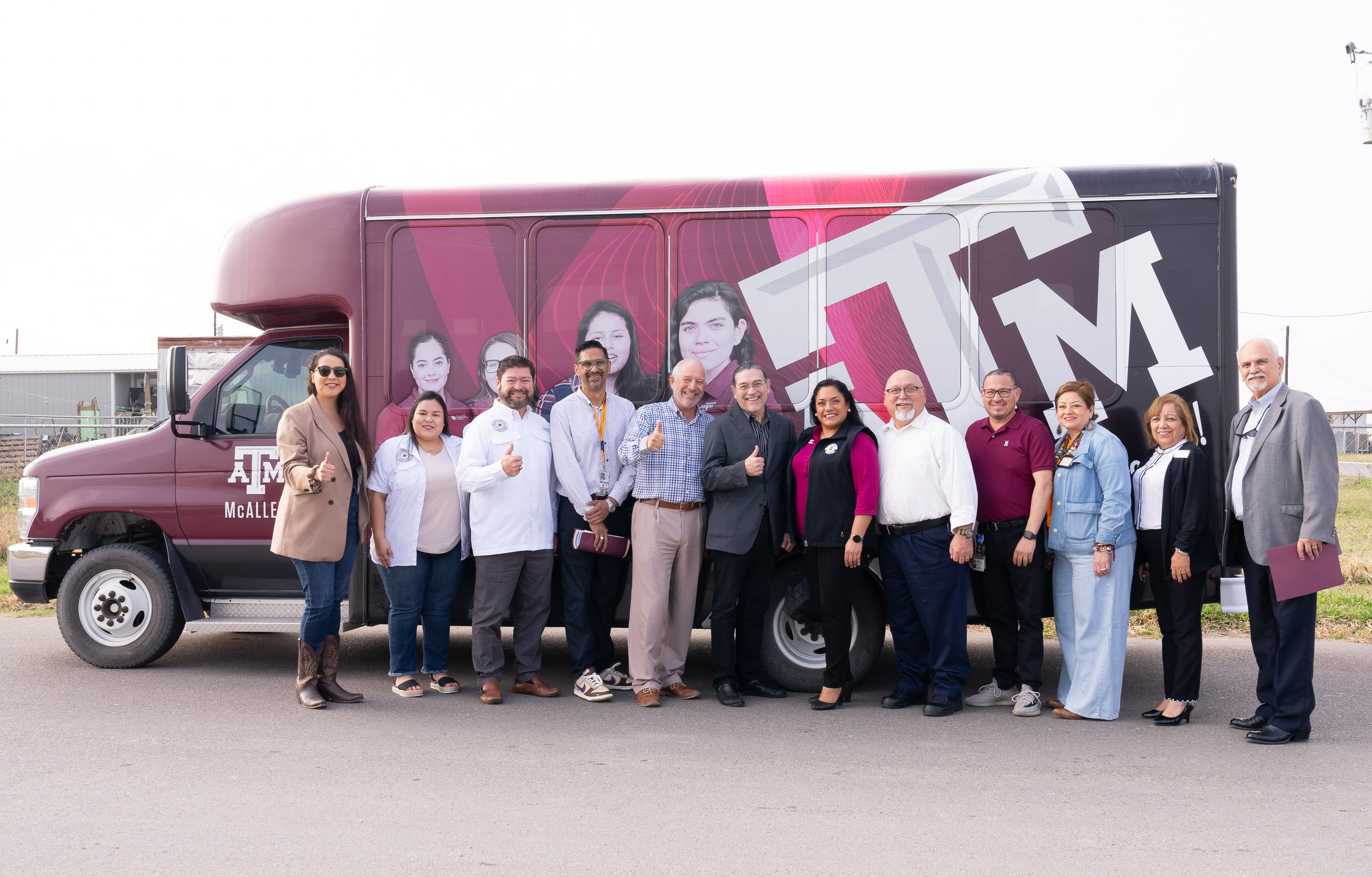
When word spread in the Rio Grande Valley that Robert L. Santos, the 26th director of the U.S. Census Bureau, would have a business engagement in the region, Manny Vela, associate vice president and chief operating officer for the Texas A&M University Higher Education Center at McAllen, said he jumped at the opportunity to meet Santos. He was eager to introduce the director to local dignitaries and begin discussions on enhancing census reporting to better serve colonias along the Texas-Mexico border.
Colonias are isolated neighborhoods or rural subdivisions that are oftentimes economically distressed and relatively underdeveloped, and lack fundamental infrastructure such as running water, electricity and paved roads.
Vela oversees the Texas A&M Colonias Program, which endeavors to help meet critical needs, including government services that provide invaluable community resources like education, job training and health care.
He said his goal in meeting with Santos was to raise awareness of issues affecting quality of life in colonias and aim for more accurate census reporting. Data gathered by the Census Bureau helps determine government representation and district lines, as well as the distribution of trillions of dollars in federal funding for communities to pay for things like schools, hospitals and roads.
According to the Hidalgo County Health and Human Services Health Disparities Team, one of the many challenges faced by colonias is having low self-response census rates. Census takers also often find it difficult to visit remote sites to count families. These communities often include residents who are so distant from their nearest neighbor that only people familiar with the area know how to navigate them. Rainy weather and unpaved roads may also cause delays or issues driving around such areas and unfamiliar visitors may be ignored due to a fear of citizenship status being questioned.
Last week, Santos met with the Colonias Program, the Office of Hidalgo County Judge Richard F. Cortez, the Hidalgo County Health and Human Services Office, and the Commissioner of Hidalgo County Precinct Four, in Edinburg, Texas, to ride a bus together to tour one of the Pueblo de Palmas colonias in Hidalgo County.
Upon his arrival to the colonia, Santos said, “My goal is to understand housing situations, learn how colonias came to be and the common community issues.”
Low Census Response Rates
The colonia (Census Tract 235.24) is one of the county’s — and the nation’s — most challenging census tracts to count, said Jason Hernandez, from the Hidalgo County Health and Human Services Health Disparities Team. He said the colonia, “has a self-response rate in the bottom 20% of census survey rates in 2020. This same census tract is identified as having a population at very high risk of undercounting young children.”
Hernandez continued, “This tract was selected to receive an additional Census Bureau mailing if residents had not self-reported by mid-September of 2020. Despite efforts, the self-response rate for this tract was 51.3% in 2010 and increased marginally to 56.7% in 2020, falling below the national average of 64%.” Several surrounding neighborhoods also fall under the national average.
As a result of low self-response rates, families in colonias can be undercounted and therefore deprived of access to health care and early childhood education. Census takers make attempts to visit colonias to capture data, and Oscar Muñoz, the director of the Colonias Program, who also joined the tour, suggested there may be an opportunity for community health workers from the Texas A&M Colonia Program to partner with the Census Bureau to help tackle low census response rates.
Eduardo Olivarez, the chief administrative officer for Hidalgo County Health and Human Services, was in attendance during the colonia visit. He said, “Colonias stretch from El Paso to the Rio Grande Valley and sometimes the distance from one home to the next is huge. It takes a valiant effort for census staff to drive to each home in colonias.”
Muñoz shared, “During the 2020 census, census staff underwent training with us and after learning how much work would have to go into visiting colonias, they quit before even starting. To help with outreach for community programs and services, we sometimes have block parties to hand out flyers and information. Word of mouth is very helpful in these communities. On-the-ground communication is helpful and needed.”
Olivarez told Santos, “We may need block parties to help with census efforts. Use our county as a pilot program for census data collection.”
Dr. Jennifer Mendoza-Culbertson, the chief administrator for internal affairs for Hidalgo County’s Precinct Four, attended on behalf of Commissioner Ellie Torres. She said, “We are determined to serve the underserved and not-served communities to help with socioeconomic situations. This particular colonia, for example, has a field and a park, they have Zumba classes, and kids have sports tournaments. Commissioner Torres wants to advocate for these communities and help be their voice.”
Santos said he was thankful to meet with all the leaders from Texas A&M and the Rio Grande Valley to discuss colonias and said he looks forward to working together to enhance the U.S. Census Bureau’s efforts in these communities.
“There is a definite need to focus on the people we can’t reach like promotoras (community health workers) that need to physically visit and build networks,” he said.
Vela said the Colonias Program is determined to continue communication with government officials to help with census data collection in colonias across Texas and provide more accessible services and resources to these underserved communities.
